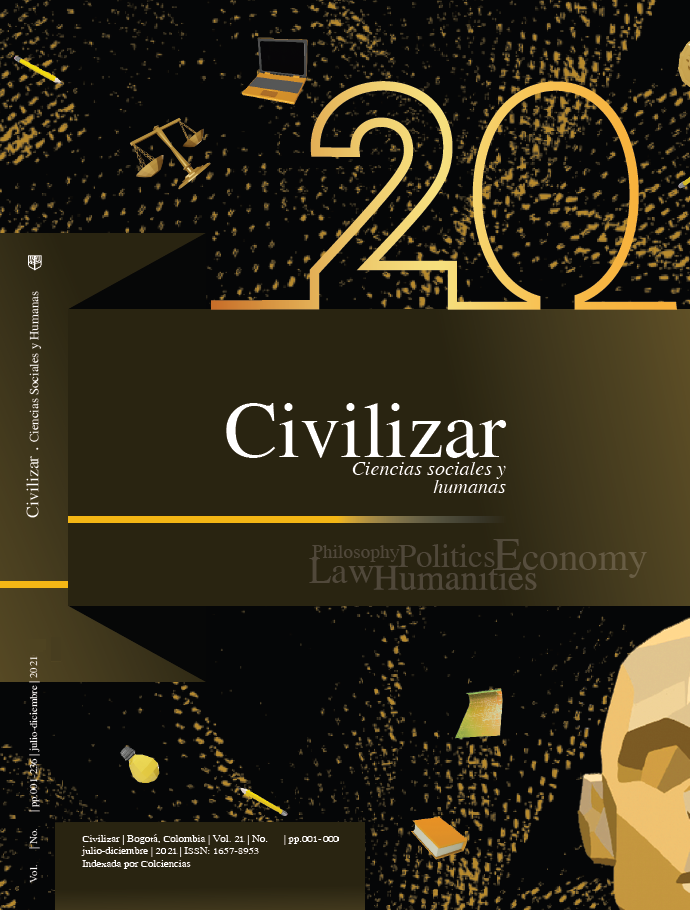Abstract
The aim of this study was to investigate the use of a portfolio as a performance evaluation instrument in an Ecuadorian educational institution that works under the competency-based educational model. The program endorsed by the Ministry of Education for the mathematics course during the first year of upper secondary education was used as point of reference. The research was designed under the case study methodology integrating the mixed-method approach. Quantitative and qualitative data were collected and integrated into the analysis. A total of 22 students participated in the study. To estimate the usefulness of the portfolio as a performance evaluation tool, the researchers designed a rubric based on a learning taxonomy aimed at classifying thought processes. A questionnaire was also designed for data collection. The evidence contained in the portfolio of three students was analyzed in depth. Their evaluation results were compared. In addition, the perception of the students of the same grade and academic group regarding the use of portfolios was integrated into the analysis. The results allowed researchers to infer the usefulness of
the portfolio as an assessment instrument. Apparently, it is a convenient instrument to promote both the learning process, and the development of skills. Suggestions on possible future studies regarding the design and application of the portfolio in the classroom are integrated.
References
Alcaraz, N. (2015). La evaluación en el aula: explorando el portafolios en secundaria. Un estudio de caso [te¬sis de doctorado, Universidad de Málaga]. http://hdl.handle.net/10630/9837
Barberá, E. (2005). La evaluación de competencias com¬plejas: la práctica del portafolio. Educere, 9(31), 497- 504. http://www.redalyc.org/pdf/356/35603110.pdf
Baxter, P. y Jack, S. (2008). Qualitative Case Study Me¬thodology: Study Design and Implementation for Novice Researchers. The Qualitative Report Volu¬me, 13(4), 544-559. https://doi.org/10.46743/2160-3715/2008.1573
Beckers, J., Dolmans, D. y Van Merriënboer, J. (2016). E-portfolios Enhancing Students’ Self-Directed Learning: A Systematic Review of Influencing Fac¬tors. Australasian Journal of Educational Techno¬logy, 32(2). https://doi.org/10.14742/ajet.2528
Cáceres, M. (2010). Las reflexiones que los maestros en formación incluyen en su portafolios sobre su aprendizaje didáctico matemático en el aula universitaria [tesis de doctorado, Universidad de Salamanca]. https://doi.org/10.14201/gredos.76373
Cárdenas, G. M. y Vega, M. (2019). El portafolio como estrategia de autorregulación en el desarrollo de competencias profesionales de los estudiantes. In Vestigium Ire, 10(1), 21-37. https://doi.org/10.15658/INVESTIGIUMIRE.191001.03
Cleveland, R. E. (2018). Using Digital Portfolios: Reflection, Assessment & Employment. TechTrends, 62(3), 276-285. https://doi.org/10.1007/s11528-018-0262-0
Dayal, H. C. y Cowie, B. (2019). Professional Learning Intervention in Mathematics: A Case of Developing Portfolio Assessment. Australian Journal of Teacher Education, 44(2), 99-118. http://doi.org/10.14221/ajte.2018v44n2.7
Efklides, A. (2011). Interactions of Metacognition with Motivation and Affect in Self-Regulated Learning: The MASRL Model. Educational Psychologist, 46(1), 6-25. https://doi.org/10.1080/00461520.2011.538645
Gallardo, K. (2020). Competency-Based Assessment and the Use of Performance-Based Evaluation Rubrics in Higher Education: Challenges towards the Next Decade. Problems of Education in the 21st Century, 78(1), 61-79. https://doi.org/10.33225/pec/20.78.61
García-Carpintero., E. (2017). El portafolio como metodología de enseñanza-aprendizaje y evaluación en el practicum: percepciones de los estudiantes. REDU: Revista de Docencia Universitaria, 15(1), 241-257. https://doi.org/10.4995/redu.2017.6043
Hindriana, A. F. y Setiawati, I. (2018). The Development of Authentic Assessment Rubric for Assessing Undergraduate Students’ Learning and Performance. Indonesian Journal of Learning and Instruction, 1(1), 21-28. https://doi.org/10.25134/ijli.v1i1.1279
Jin, S. H., Song, K. Il, Shin, D. H. y Shin, S. (2015). A Performance-Based Evaluation Rubric for Assessing and Enhancing Engineering Design Skills in Introductory Engineering Design Courses. The International Journal of Engineering Education, 31(4), 1007-1020. https://www.researchgate.net/publication/282929432_A_Performance-Based_Evaluation_Rubric_for_Assessing_and_Enhancing_Engineering_Design_Skills_in_Introductory_Engineering_Design_Courses
Mellado, M. (2013). Desarrollo y evaluación de competencias en la formación del profesorado utilizando e-portafolio y rúbrica [tesis de doctorado, Universidad de Extremadura]. Dehesa. http://dehesa.unex.es/bitstream/handle/10662/896/TDUEX_2013_Mellado_Hernandez.pdf?sequence=1&isAllowed=y
Mhlauli, M. y Kgosidialwa, K. (2016). The Use of a Portfolio to Enhance Authentic Assessment Among In-service Student-Teachers’ in Social Studies Education at the University of Botswana. Journal of Education and Human Development, 5(3), 84- 96. https://doi.org/10.15640/jehd.v5n3a10
Ministerio de Educación del Ecuador. (2016). Educación General Básica Elemental. https://educacion.gob.ec/wp-content/uploads/downloads/2016/03/ELEMENTAL1.pdf
Moreno Olivos, T. (2016). Evaluación del aprendizaje y para el aprendizaje: reinventar la evaluación en el aula. Universidad Autónoma Metropolitana.
Muñoz González, L. de la C., Serván Núñez, M. J. y Soto Gómez, E. (2019). Las competencias docentes y el portafolio digital: crear espacios de aprendizaje y evaluación en la formación inicial del profesorado. Un estudio de casos. Revista Iberoamericana de Evaluación Educativa, 12(2), 111-131. https://doi.org/10.15366/riee2019.12.2.006
Padua, M. (2019). Estrategias metacognitivas y rendimiento alcanzado en estudiantes de matemáticas en la Universidad Central del Este. UCE Ciencia. Revista de postgrado, 7(1). http://uceciencia.edu.do/index.php/OJS/article/view/153/146
Pérez, M. M. (2014). Evaluación de competencias mediante portafolios. Perspectiva Educacional. Formación de Profesores, 53(1), 19-35. https://doi.org/10.4151/07189729vol.53-iss.1-art.213
Shaidullina, A. R., Fassakhova, G. R., Valeyeva, G. K., Khasanova, G. B., Komelina, V. A. y Ivanova, T. L. (2015). A Comparative Research on Levels of Students’ Formation Skills of Their Career Advancement Portfolio in Secondary and Higher Education Systems. Asian Social Science, 11(1), 375- 379. https://doi.org/10.5539/ass.v11n1p375
Sigal, C. (2007). El portafolio, instrumento de evaluación para promover la reflexión. En E. Pagani (ed.), Experiencias y propuestas en la construcción del estilo pedagógico en diseño y comunicación (pp. 303-305). Universidad de Palermo. http://fido.palermo.edu/servicios_dyc/publicacionesdc/archivos/10_libro.pdf
Smit, R., Bachmann, P., Blum, V., Birri, T. y Hess, K. (2017). Effects of a Rubric for Mathematical Reasoning on Teaching and Learning in Primary School. Instructional Science, 45(5), 603-622. https://doi.org/10.1007/s11251-017-9416-2

This work is licensed under a Creative Commons Attribution-NonCommercial-NoDerivatives 4.0 International License.
Copyright (c) 2021 Journal Civilizar: Social and Human Sciences


